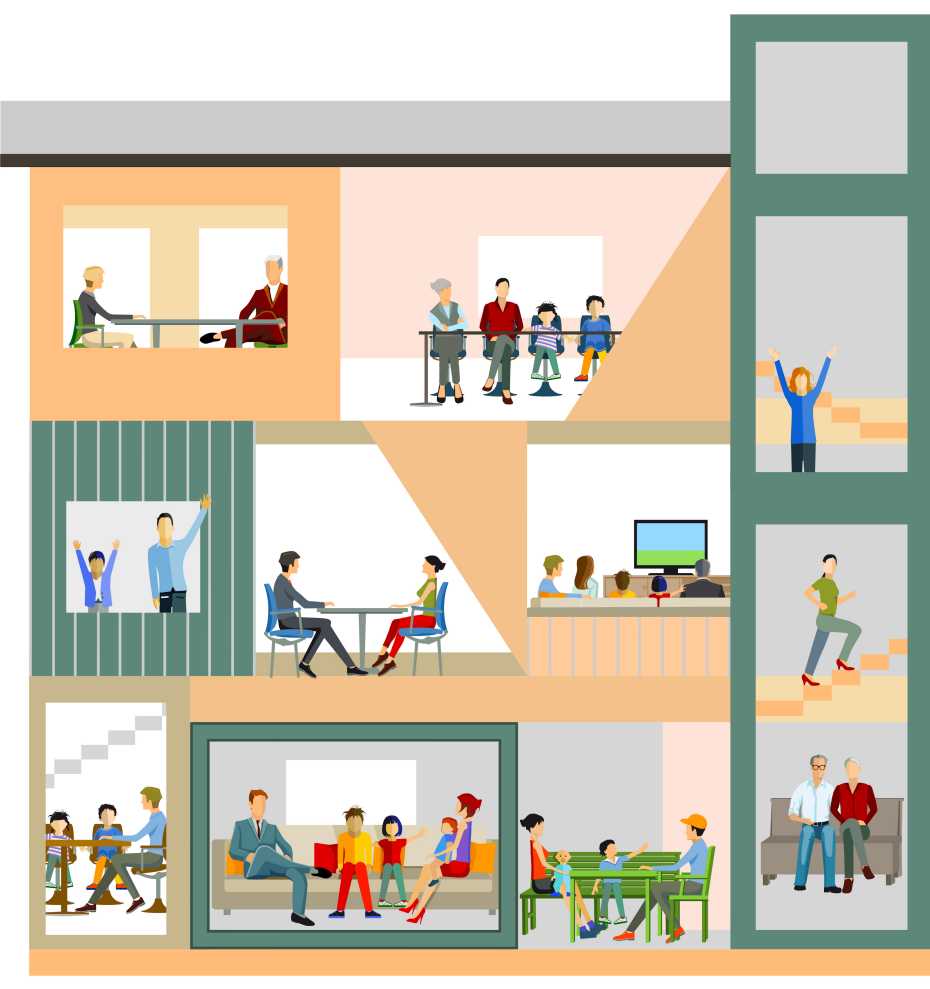Intergenerational co-living in a long-term perspective – from intentions to implementations
The three-year practice-oriented research project (start October 2020) examines intergenerational housing projects in a long-term perspective. The innovative original ideas of the projects are analyzed in light of the lived experiences and specific developments over the years – in order to strengthen existing and emerging practice of intergenerational co-living.

The idea of intergenerational co-living is very popular today. This practice-oriented research project carries out a “reality check” and examines intergenerational housing projects from a long-term perspective. The innovative original ideas of the projects are analyzed in light of the lived experiences and specific developments over the years, including different perspectives (initiators, architects, operators and sponsors, residents, caretakers, community workers and other stakeholders).
The following questions are leading the project:
- How does intergenerational co-living change in the “aging process” of the housing projects and their residents – from the initial intentions to the everyday life over time?
- How do the projects develop over time – with regards to their structural/ financial organization and management, their objectives, the residents’ structure and interactions, the built spaces and their use, as well as the embeddedness of the projects in their specific living environment and neighborhood?
- How sustainable are the projects? Which effects do they have in their wider surroundings and with regards to the development of new projects?
In the research process we promote networking as well as the co-production of knowledge with people who are committed to and interested in the topic (e.g. through workshops, excursions and a conference).
On the basis of the research findings, we aim to work out and broadly communicate “lessons learned” and recommendations for action for public, non-profit and private actors in the field of intergenerational co-living and housing in ageing societies.
The project is developed in cooperation and pool funding of the Age Foundation, the Walder Foundation, the Beisheim Foundation, the Bundesamt für Wohnungswesen BWO and Max Pfister Baubüro. The research is conducted by ETH Wohnforum in cooperation with Dr. Heidi Kaspar, Competence Center Participative Health Care of the Bern University of Applied Sciences BFH and with Prof. Dr. Ulrich Otto (age-research.net)
Duration: 2020-2024
